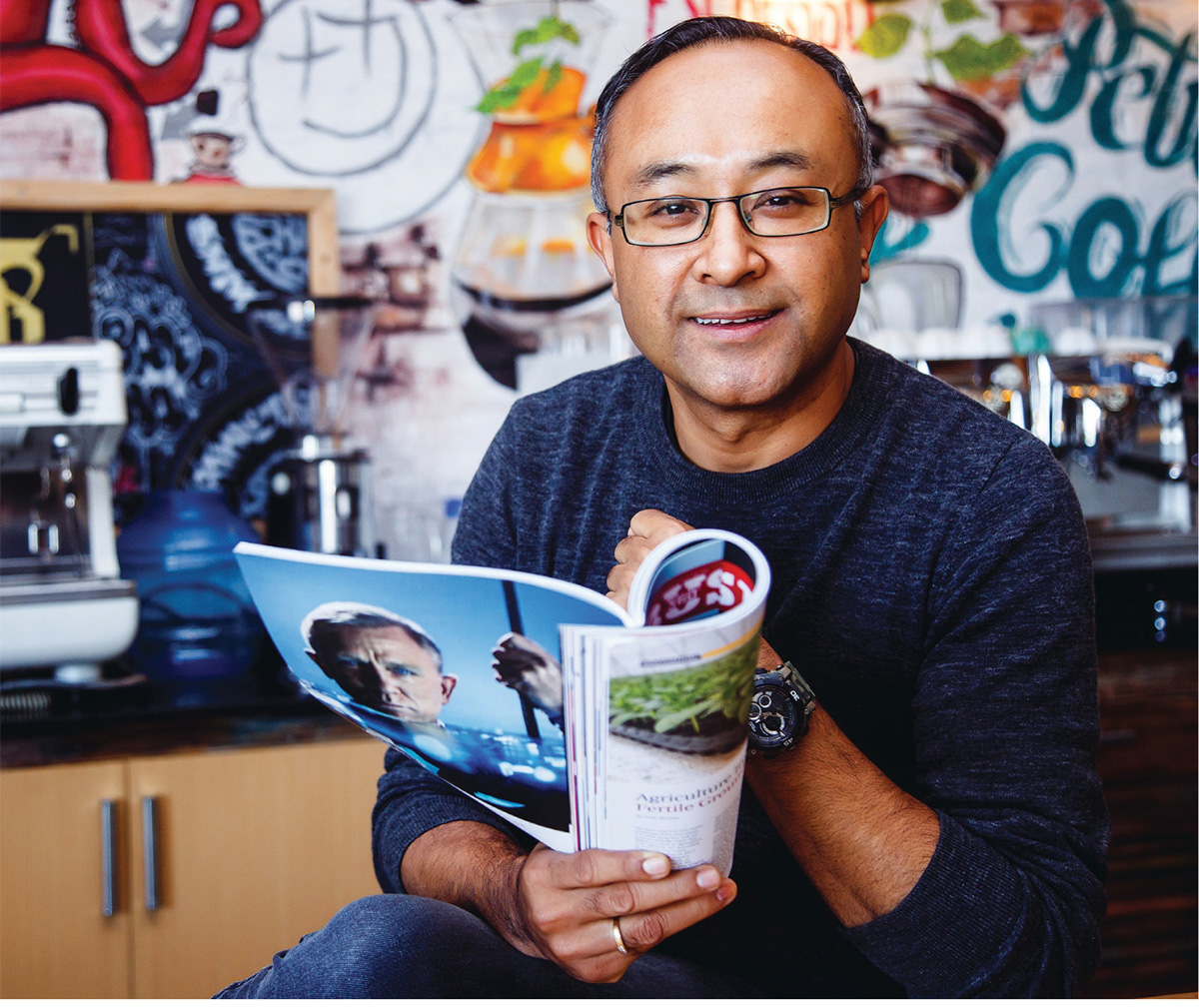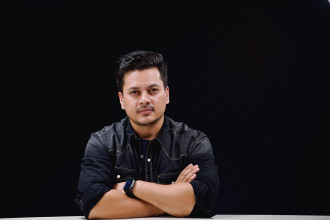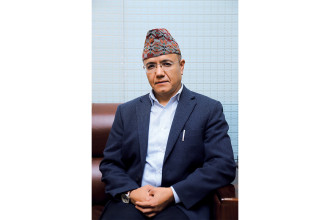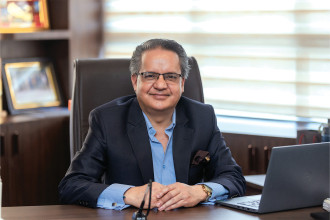
Gagan Pradhan is the founder and owner of Himalayan Java, the first of its kind coffee shop in the nation with franchises overseas, and barista training centres.
With an Australian degree in hand, Pradhan wanted to do something worthwhile in the Nepali entrepreneurship landscape. After six weeks of intensive market research, he observed that coffee shops do not exist in Kathmandu. This led him to establish Himalayan Java in 2000.
Almost nineteen years hence, gearing up as an answer to the international competition that is penetrating the Nepali market, Pradhan is working towards 100% organic Nepali beans grown on his farm in Fikkal, Ilam.
In a conversation with B360, Pradhan shares his thoughts on leadership. Excerpts:
How would you describe your leadership style?
I believe my leadership style is very casual. Also, I don’t consider myself a leader rather a part of the team. Nineteen years back when I started Himalayan Java, I never acted as a leader or boss of the coffee shop. Back then I served as a cashier and you could find me behind the coffee maker as well. The values, passion and dedication which were 19 years back still remain. Wherever I see myself needed whether it is in roasting, farming, training, kitchen or baking, I consider myself as one of the team members.
What is one characteristic that you believe every leader should possess?
I have been in this industry for more than 26 years and I have observed that the most important thing is how you treat your employees. I have always regarded my employees as a good investment rather than expense. Around 200 plus employees make up my team and are part of our family.
How do you help a new employee understand the culture of your organisation?
Because of our in-house training institute, every employee is well aware of the culture of our organisation and how does a coffee shop function before actually working in any of our outlets. Also, my workplace doesn’t have any stern rules. A coffee shop is a very casual place and I want to keep it that way. Overall, running a coffee shop is five times easier than running a restaurant.
What are the most important decisions you made as a leader?
I have made tons of interesting decisions. Nineteen years back when I came from Australia, I thought of starting up a coffee shop which was not a regular decision in any way because back then coffee culture didn’t even exist. The equipment that we have introduced to the market, the concept that we have hosted wherein people are live roasting, all these are results of a few of my important decisions.
Have you ever struggled with work-life balance?
There is a saying that if you can manage your time and mind, a lot of things are possible. When I started Himalayan Java, I used to work 18 hours a day and now I don’t even work for an hour at times or maybe an hour a week. Had I not managed my mind then, I would have shut down this business after six months of operation.
When I started Java, nothing was easy. 30 % of people who walked into my coffee shop thought it was a computer institute. The other 25% used to think Java is a furniture showroom. Moreover, the menu we introduced was relatively new; people weren’t able to pronounce the different types of coffee being offered. Back then people were used to having Rs 5 or 10 coffee and we started with Rs 55 to 70. It wasn’t easy. I was paying Rs 90,000 as rent for the Thamel outlet and my average daily sales used to be Rs 2000. In those days the highest sale we did was Rs 4,000 in two years. But I was very focused and had a strong passion for this business. Since I came from the same background, it was easier for me to understand that no matter the amount of investment you put in, it takes time to get returns.
What is the biggest challenge the hospitality sector is facing today?
Nineteen years back the unavailability of ingredients was a major challenge and even today this challenge remains: supply doesn’t meet demand. The other huge challenge is skill migration.
What are you doing to ensure you continue to grow and develop?
I am investing in high-quality machines and farming. When I have control over my farm, I can make sure of the quality. My idea is from crop to cup.
What are the most important values you demonstrate as a leader?
There is a saying that if you take care of your employees, they will take care of your customers. As a leader, for me, the most important value is how I treat my employees. Many of my employees in Thamel outlet have been working with me since its inception.
Employee turnover is a big challenge in any industry, what do you do towards employee retention?
A number of employees are travelling abroad for work. Within 3-4 years, they are confident enough and barista skills are highly valuable abroad and paid well too in places like Australia, America and the UK. As an employer, I would say that if they can stick around for 3-5 years then it is okay with us but if someone is leaving I don’t have control over him/her.
Also, there are a number of coffee shops that are opening in the nation. And if the next door coffee shop wants to steal my staff, they will obviously pay double, run for six months and then probably close down. Suddenly, the staff run out of jobs and this is what is happening currently in our country.
How do you motivate your staff especially in times of adversity?
I think, for me, it is very easy. I don’t sit with the employees and give them hours of lecture but I show them how to do it. Actions speak louder.
Whose leadership skills inspire you?
In Nepal, my big source of inspiration is Shyam Kakshapati, owner of Nanglo Bakery. He is a pioneer in the restaurant business and he is running massive operations. The way he has hired differently-able people and is running the business is not easy. Even I thought of running one Java outlet with sign language, I tried and I failed.






-(1)-1752214965.jpg)